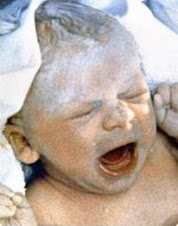Stressed by the fact that you are trying to get pregnant? Not to worry, the stress you are experiencing won't impact the effectiveness of the fertility drugs you may be taking, so don't sweat it. Stress and tension don't decrease the success of a woman's fertility treatment, a new study suggests.
Three and a half thousand women that took fertility treatments were surveyed in 14 studies for the presence of stress and anxiety compared to levels before they begun treatments. Many women believe that emotional distress can reduce their chances of becoming pregnant naturally or having success with fertility treatments, but the researchers say that's a mistaken idea based on anecdotal evidence and myths.
The results proved that there is no association between emotional distress and the likelihood of becoming pregnant.
Jacky Boivin, a professor in the School of Psychology at Cardiff University in Wales states:
"These findings should reassure women that emotional distress caused by fertility problems or other life events co-occurring with treatment will not compromise their chance of becoming pregnant."
Health experts say that about 15 percent of couples are infertile. Infertility means not being able to get pregnant after one year of trying. Or, six months, if a woman is 35 or older. Women who can get pregnant but are unable to stay pregnant may also be infertile.
Infertility treatment can be physically uncomfortable, time-consuming, exhausting, and costly, all without a guarantee of success. The infertility experience for many can range from multiple diagnostic procedures through progressively more aggressive treatment options, all of which impose demands upon the emotional and physical self. It's no wonder that many women experience severe stress, depression, or anxiety during treatment for infertility.
Medical treatment of infertility generally involves the use of fertility medication, medical device, surgery, or a combination of these.
If the sperm are of good quality and the mechanics of the woman's reproductive structures are good (patent fallopian tubes, no adhesions or scarring), physicians may start by prescribing a course of ovarian stimulating medication. The physician may also suggest using a conception cap cervical cap, which the patient uses at home by placing the sperm inside the cap and putting the conception device on the cervix, or intrauterine insemination (IUI), in which the doctor introduces sperm into the uterus during ovulation, via a catheter. In these methods, fertilization occurs inside the body.
If conservative medical treatments fail to achieve a full term pregnancy, the physician may suggest the patient undergo in vitro fertilization (IVF). IVF and related techniques (ICSI, ZIFT, GIFT) are called assisted reproductive technology (ART) techniques.
ART techniques generally start with stimulating the ovaries to increase egg production. After stimulation, the physician surgically extracts one or more eggs from the ovary, and unites them with sperm in a laboratory setting, with the intent of producing one or more embryos. Fertilization takes place outside the body, and the fertilized egg is reinserted into the woman's reproductive tract, in a procedure called embryo transfer.
In 2007 the FDA cleared the first at home tier one medical conception device to aid in conception. The key to the kit are cervical caps for conception. This at home insemination method allows all the semen to be placed up against the cervical os for six hours allowing all available sperm to be placed directly on the cervical os. For low sperm count, low sperm motility, or a tilted cervix using a cervical cap will aid in conception.
SOURCE:MEDICAL NEWS TODAY






